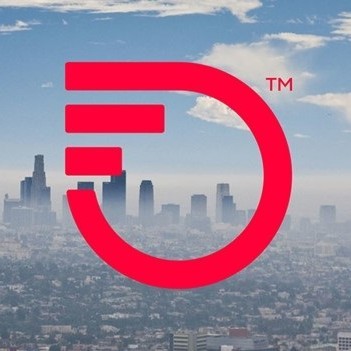Frontier agrees to $60M settlement in Connecticut covering fiber builds, DSL upgrades
Frontier's settlement with the Connecticut AG covers expanded access to 'economically distressed communities,' an end to hidden Internet surcharges, and an overhaul of the telco's marketing and customer service.

Frontier Communications has agreed to a multi-faceted settlement worth more than $60 million that will, in part, call on the telco to expand broadband access to "economically distressed communities" in Connecticut.
The settlement (PDF), announced this week by Connecticut Attorney General William Tong, also includes a promise from Frontier to end a "hidden" monthly $6.99 Internet surcharge and calls for the company to overhaul its marketing and customer service in the state. The AG's office estimates that the surcharge cost customers about $16 million statewide last year.
Figure 1:  Frontier refreshed its brand and launched a new logo in April 2022, roughly a year after the telco exited bankruptcy.
Frontier refreshed its brand and launched a new logo in April 2022, roughly a year after the telco exited bankruptcy.
(Source: Frontier Communications)
The settlement effectively resolves a joint investigation by the AG's office and Department of Consumer Protection into whether Frontier deceived or misled consumers in the marketing and sales of broadband services. That investigation included a review of more than 1,400 complaints from consumers voicing concerns about charges for equipment already returned, poor/unreliable digital subscriber line (DSL) service quality, bad customer service, service overcharges and charges that continued after services were cancelled.
Regarding the DSL-to-fiber network upgrade, the settlement calls on Frontier to invest $42.5 million over the next 3.5 years, with at least half of that going to distressed communities in both urban and rural parts of the state. Tied in, Frontier has agreed to bring fiber to about 40,000 households that were "most harmed by the company's sub-par DSL service," Tong said in a statement.
Frontier will pay another $1 million to the state and dedicate an additional $200,000 "to directly compensate consumers who have been wronged," he added.
Further, a list of "accountability measures" will be kept for the next six years, covering areas such as new price and billing disclosures, advertisement disclosures, and requirements to deliver promised speeds. Frontier could be on the hook for another $6 million in penalties if it fails to live up to the commitments of the settlement.
Burying more hatchets
The settlement with the AG's office is just the latest chapter of trouble Frontier has faced in Connecticut. In August the company said it was moving ahead with fiber expansion in the state after the Connecticut Public Utilities Regulatory Authority (PURA) issued a cease and desist order and fined Frontier $5 million.
PURA's issues were tied to construction-related issues, including allegations that Frontier and its contractors were employing unsafe practices for breaking into existing electrical conduits to cross roadways and not using proper trenchless excavation techniques. That action has led to Frontier reportedly halting work that involves deploying fiber conduit underground and instead focusing on fiber attached to utility poles. The good news is that the "vast majority" of the build in Connecticut is on aerial plant, according to Frontier.
The settlement with the AG's office comes as the telco, now under new leadership after exiting bankruptcy last spring, attempts to revamp its image, improve its financial position and add customers as it pushes ahead with aggressive fiber network upgrades. Its current plan is to build at least 10 million fiber locations by the end of 2025.
Frontier built a record 281,000 new fiber locations in Q2 2022, ending the period with 4.4 million locations passed with fiber (out of a total footprint of 15 million locations covering parts of 25 states).
Related posts:
— Jeff Baumgartner, Senior Editor, Light Reading
About the Author(s)
You May Also Like












